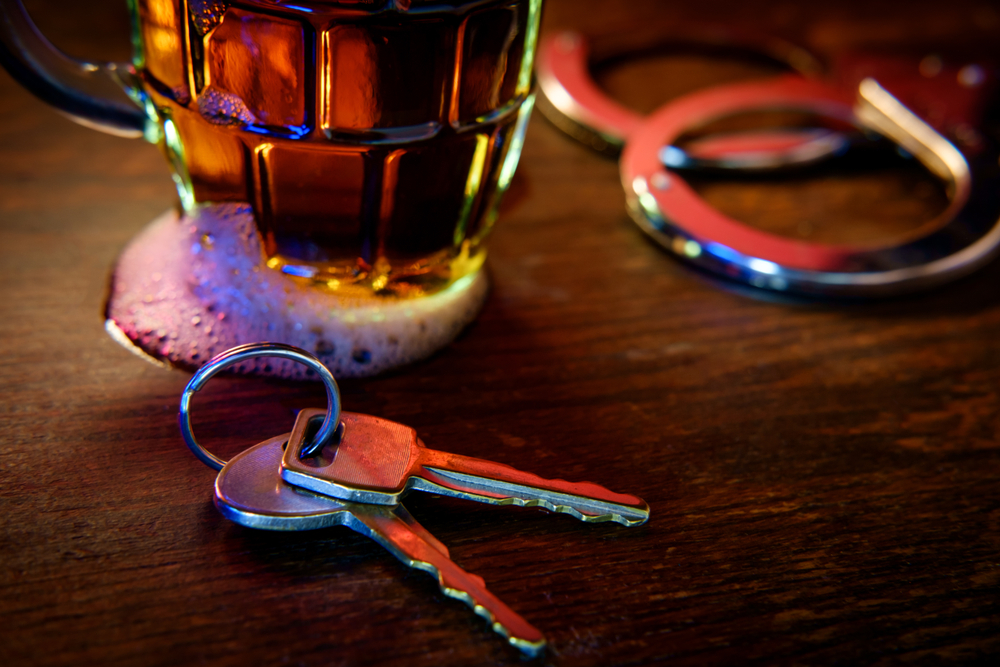
In 2021, more than 2,500 people in the State of Texas were seriously injured due to driver impairment. Understandably, the Texas criminal justice system takes drinking and driving offenses very seriously, especially those that cause another person to be injured. If you’ve been charged with intoxication assault, we urge you to contact an attorney who can defend you against the charges and work to protect your rights and freedom.
At the Law Offices of Randall B. Isenberg, we vigorously defend clients charged with drinking and driving offenses. Due to our experience handling these cases, we can effectively challenge potentially incriminating evidence such as breath and blood tests. In addition, we can help you by using a defense strategy designed to prove you did not cause another individual’s injuries.
What Is Intoxication Assault?
In Texas, a motor vehicle driver commits intoxication assault if “while operating a motor vehicle in a public place while intoxicated, by reason of that intoxication causes serious bodily injury to another.”
Furthermore, being “intoxicated” means having a blood alcohol concentration (BAC) of 0.08% or above or exhibiting mental and physical impairments due to the use of “alcohol, a controlled substance, a drug, a combination of two or more of those substances, or any other substance into the body.”
The Texas Penal Code describes a “serious bodily injury” as one that “creates a substantial risk of death or that causes death, serious permanent disfigurement, or protracted loss or impairment of the function of any bodily member or organ.”
Taking these legal definitions into account, to convict you of intoxication assault, the State of Texas must prove you were intoxicated, at fault for causing a motor vehicle accident, and responsible for inflicting serious bodily harm on another individual.
Texas Penalties for Intoxication Assault
Intoxication assault can be charged as a first, second, or third-degree felony depending on the professional status of the victim who sustained serious bodily injury:
- A third-degree felony is punishable by 2-10 years in prison and a fine of up to $10,000.
- A second-degree felony when the victim is a firefighter or emergency medical personnel is punishable by 2-20 years in prison and up to a $10,000 fine.
- A first-degree felony when the victim is a peace officer or judge is punishable by 5-99 years or life in prison and up to a $10,000 fine.
Because an intoxication assault charge is often related to a DWI (driving while intoxicated), you may face additional charges and separate penalties. For example, individuals convicted of a DWI may also be subjected to driver’s license suspensions, substance abuse education, counseling, rehab, community service, and supervised probation.
Also, offenders may have their license suspended and an ignition interlock device installed on their vehicle. Finally, under federal law, persons who receive a felony conviction will not be allowed to possess firearms or ammunition for the remainder of their lives.
Intoxication Assault Defenses
Proving that you were driving a car that collided with another vehicle, bicycle, or person may be relatively straightforward. However, your attorney can challenge other critical case elements, such as your alleged intoxication and role in causing another person’s presumed “serious bodily injuries.”
Challenging Breathalyzer Testing
Under Texas’ implied consent law, when you receive a state driver’s license, you have given consent to be tested for intoxicants if a police officer arrests you on suspicion of impaired driving. Of course, you can still refuse to take a breathalyzer test, but in doing so, your license will be immediately suspended.
If you blow above Texas’ legal BAC limit of 0.08% on a breathalyzer test, you should be aware that a DWI or intoxication assault conviction does not have to be inevitable. Your attorney can dispute the reliability of the device and its administration, as specific procedures must be followed for a test’s reading to be viable.
For example, the device should be flushed or “purged” of any previous breath samples before the next person uses it. After a purge, any reading other than zero may indicate the breathalyzer is contaminated, malfunctioning, or incorrectly calibrated. Therefore, the test may be unreliable if a purge is not performed or the operator fails to use the device properly.
Moreover, you should not presume that your breathalyzer test was definitive and infallible, especially if you believe your BAC was below the legal limit. Our team of attorneys knows how to challenge these results and what strategies can undermine their validity.
Challenging Blood Testing
If you are compelled to undergo a blood alcohol test after a DWI-related arrest, your attorney will ensure the sample and lab work are analyzed to identify procedural errors that may compromise the sample or the test’s accuracy. Common issues that undermine the reliability of the blood test include the following:
- Police or lab technicians failed to follow legal or testing procedures correctly
- An unqualified person administered the test
- The lab failed to meet sanitation standards
- Malfunctioning lab equipment
The blood sample may also have been mishandled or mislabeled, contaminated by alcohol used to prepare the injection site, or fermented due to improper storage and decomposition.
Our intoxication assault lawyers in The Colony can analyze test results, the sample’s chain of custody, and lab procedures to dispute the reliability of your blood test results. If there is insufficient evidence to prove beyond a reasonable doubt that you were driving over the legal limit, it will be much more difficult to be convicted of intoxication assault.
Challenging Causation
An attorney can address causation by challenging the assumption that you, as an intoxicated driver, MUST have caused the accident and any related injuries. Intoxication assault attorneys often work closely with accident reconstruction experts to determine if another driver’s actions or inaction contributed to or caused the collision for which you alone are being blamed.
Challenging Serious Bodily Injury
Many drivers accused of drunk driving mistakenly assume they won’t be charged for intoxication assault because there were no apparent injured victims at the accident scene. However, if you are urged to immediately seek legal counsel because a might later realize or claim to discover that they did, in fact, sustain a serious bodily injury.
Texas law, as described above, implies that superficial bruises or scratches are insufficient to be considered serious bodily harm. Instead, these injuries are traumatic, long-lasting, and cause significant physical or mental impairments. Therefore, defense attorneys commonly use health experts to analyze the alleged victim’s medical records and statements to determine if they are being honest about the true nature and severity of their injuries.
Looking for an Intoxication Assault Lawyer in The Colony? We Can Help You Today
Our legal team at the Law Offices of Randall B. Isenberg is willing to fight for your rights and future. Former prosecutor and state district judge Randall B. Isenberg has more than three decades of legal experience and a thorough and detailed understanding of the Texas justice system. He aims to ensure clients are treated fairly and experience the most favorable outcome achievable. We urge you to contact us today for a confidential case review!










